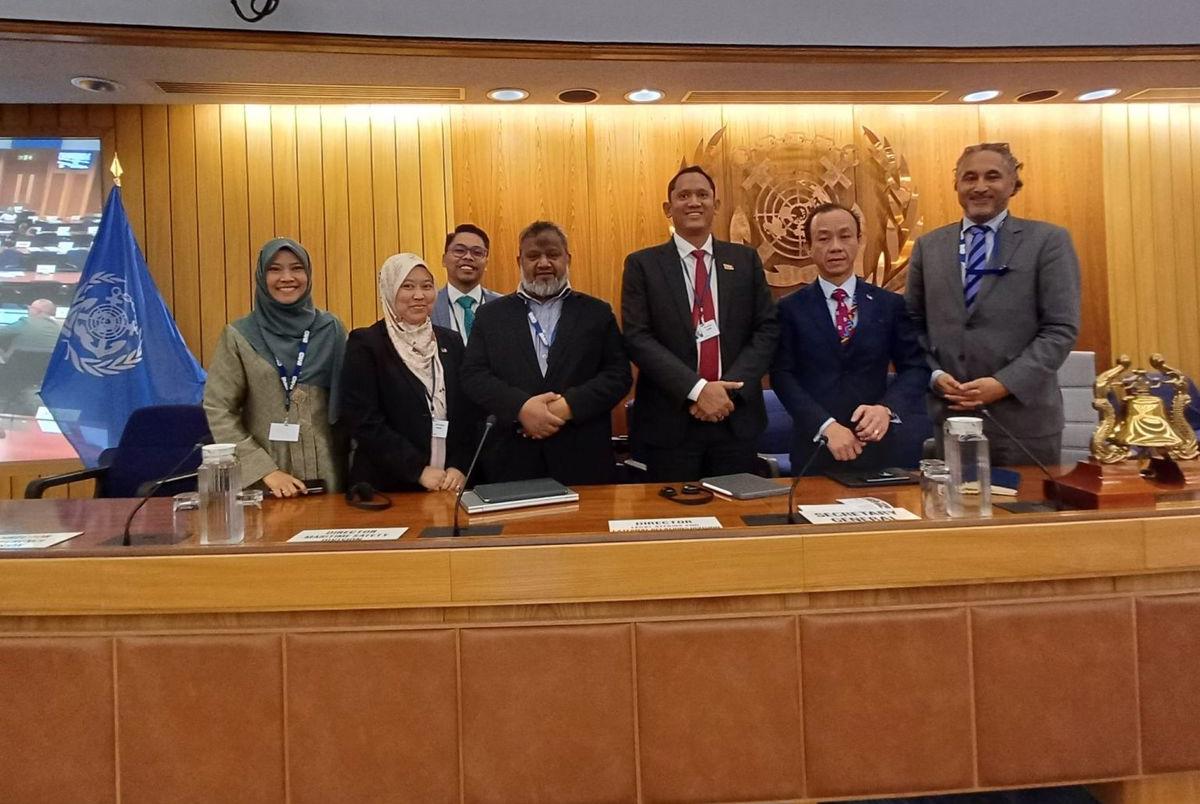MEPC 83: Methanol Institute endorses IMO draft framework
Methanol producer association Methanol Institute (MI) has welcomed the IMO’s draft package of measures as it “includes emissions pricing, incentives for sustainable fuels, and support for a just transition in developing nations.”
 IMAGE: Methanol Institute members at IMO's MEPC 83. LinkedIn of the Methanol Institute
IMAGE: Methanol Institute members at IMO's MEPC 83. LinkedIn of the Methanol Institute
The International Maritime Organization’s (IMO) member states on Friday approved a deal for a two-tiered greenhouse gas (GHG) intensity reduction framework.
Under the agreed draft, ships will be required to gradually reduce their well-to-wake GHG intensity starting in 2028. The reduction targets are based on 2008 levels, with a benchmark set at 93.30 grams of CO2-equivalent per megajoule (gCO2e/MJ).
GHG reduction targets will become increasingly stringent over time, ranging from 4–17% in 2028 to 30–43% by 2035. The Marine Environment Protection Committee (MEPC) is set to revisit and potentially tighten the targets for the 2036–2040 period at its 2032 session.
Ships that fail to meet the targets will be required to offset their excess emissions through the framework’s two-tier compliance mechanism.
“Amid complex global geopolitics, IMO member states reached a landmark interim agreement, which if adopted in October, could generate an estimated $12 billion annually to support the scale-up of clean fuels,” the Methanol Institute estimates.
Others have argued that, as the IMO framework stands now, there will not be enough funds generated to support zero- and near-zero (ZNZ) emission fuels at scale.
The funds will be "insufficient relative to the scale required" to support ZNZs in the early adoption phase towards 2035, the UCL Shipping and Oceans Research Group has said.
The Global Maritime Forum and Transport & Environment have voiced similar doubts.
Where does methanol fit in?
Several shipping companies are investing in methanol-capable ships to include methanol in their future fuel mix. This will boost demand for methanol as a bunker fuel in the coming years.
While some ships run on grey methanol today, this looks set to be a more costly option when the IMO framework comes into force. Even if grey methanol is considerably cheaper than renewable bio-methanol and e-methanol variants today, grey methanol has a high GHG intensity and will be penalised from 2028.
The IMO has not yet agreed on what the GHG intensities of either of the methanol types will be. But it has established an expert working group to come up with lifecycle assessments (LCAs) of their emissions - which will determine their scores in the two-tier compliance framework.
The Methanol Institute advocates for LCAs that reflect real emissions, and for renewable and low-carbon methanol to have a role in the future marine fuel mix.
“Methanol is emerging as one of the key options in the maritime energy transition, with methanol-fueled ships gaining momentum in new vessel orders,” the association said.
By Aparupa Mazumder
Please get in touch with comments or additional info to news@engine.online






